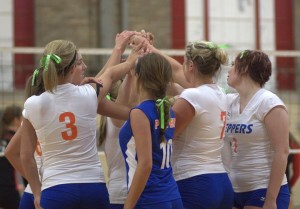 Mallory Fleming says that for her, volleyball is equal parts fun and friendship. As a longtime player, Mallory Fleming reflects on the positive role of competitive sports in her development in this recent interview with Interviewing Experts.
Mallory Fleming says that for her, volleyball is equal parts fun and friendship. As a longtime player, Mallory Fleming reflects on the positive role of competitive sports in her development in this recent interview with Interviewing Experts.
Interviewing Experts: What competitive sports experience influenced this positive opinion?
Mallory Fleming: Playing competitive volleyball for 10 years offered a first-hand look at what makes great teams succeed—and struggling teams fail.
Interviewing Experts: How do teammates bond?
Mallory Fleming: It’s a natural process in most cases. Teammates spend days, nights and even weekends together. They might meet up three or four times a week for practices and games.
Interviewing Experts: What’s special about teammate relationships?
Mallory Fleming: Teammates are supportive, win or lose. They will offer laughter and friendship even in the worst times.
Interviewing Experts: How does this transfer to the volleyball court?
Mallory Fleming: Building trust in friendships helps develop success on the court. Knowing that a teammate will always give her all is a big confidence booster.
Interviewing Experts: What can happen when the team struggles to gel?
Mallory Fleming: Teams play poorly when individual players argue, or if the team in general has bad overall morale.
Interviewing Experts: What’s a fun aspect of competitive sports?
Mallory Fleming: Traveling on the weekends and meeting team members from other schools is always enjoyable.
Interviewing Experts: How can coaches play a role in team unity?
Mallory Fleming: Coaches can support their team by encouraging social gatherings during spare time. A quick trip to the local ice cream shop after practice is always a fun way to bond.
Interviewing Experts: What valuable lessons can young people learn from sports?
Mallory Fleming: Kids can learn important values like good sportsmanship and proper etiquette.
Interviewing Experts: What other benefits make competitive sports so powerful?
Mallory Fleming: Competitive sports are structured activities, supervised by adults, that give participants a reason to get fit and stay out of trouble.